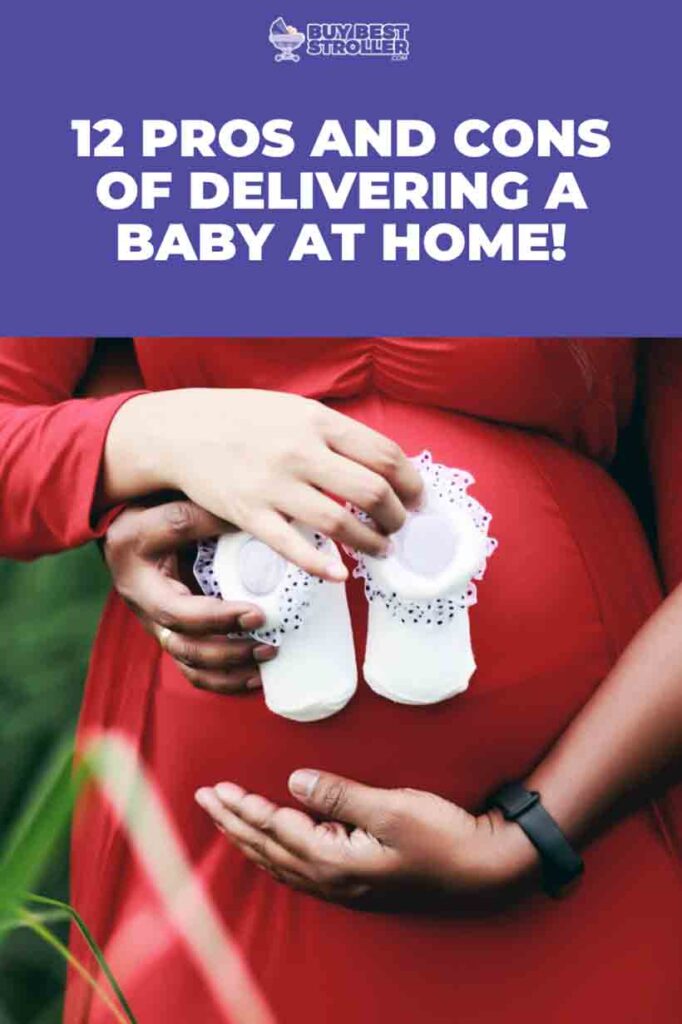Are you thinking about planned home birth? There are some pros and cons of delivering a baby at home. We have covered most of them in this article.
In recent years, home birth numbers have increased considerably, and more and more women are choosing to give birth at home instead of in a hospital. But it is crucial to understand the pros and cons of delivering a baby at home.
Since thousands of years ago, women have given birth in the comfort of their own homes. There is a very high likelihood that one of your grandparents or parents was delivered with help of a midwife. Until the 20th century, childbearing women were not moved from their homes to hospitals.
According to many studies, home birth is as safe – and sometimes even safer – than hospital birth for low-risk women. In fact, homebirth is the standard of care in many countries around the world. In this article, we’ll share everything you need to know about delivering a baby at home so you can decide whether it’s right for you.
Let’s take a look at the pros and cons of delivering a baby at home.
Pros And Cons Of Delivering A Baby At Home!
Pros Of Delivering A Baby At Home
In the United States, there are approximately 35,000 home births annually, of which only one-fourth are unplanned or unattended. In comparison with hospital births, here are some pros of delivering a baby at home:
- It Is More Comfortable To Give Birth In Familiar Surroundings: Having the familiarity and comfort of your own home. Everything about your house and belongings is familiar to you. If you’re feeling clumsy, oversized, scared, and in pain, that can be of great advantage.
- Fewer C-sections: There will be fewer delivery interventions, more natural birth opportunities, and fewer chances of having a c-section.
- Fewer Forceps/Vacuum Deliveries: Home births have fewer forceps deliveries since they can only be done in hospitals.
- Unlimited Presence Of Family And Rest In Your Own Bed After Delivery: There are no visiting hours at home. If you like, you can keep your mother close to you. Sleeping in your own bed instead of a hospital bed will make you much happier.
- It May Cost Less: planning a home birth may be more affordable because home births tend to cost about one-third of hospital births before insurance is taken into consideration.
- Religious Or Cultural Considerations: You can choose the setting that is most appropriate to your religious beliefs. You’re free to burn candles in a religious ceremony at home before or even during birth.
Read: When Do Babies Soft Spots Close
Also Read: When babies smile in their sleep do they see angels
Cons Of Delivering A Baby At Home
When considering a home birth, be aware of the potential downsides to them as well. There are also some disadvantages to having a baby at home, according to ACOG’s study:
- Greater risk of death: The rate of Infant mortality is 1-2 per 1,000 for home births, which is twice as high as hospital deliveries.
- Greater risk of neurological damage and seizures during birth: Home births have a 0.4-0.6 out of 1,000 rate of neurological damage, which is three times higher than hospital births.
- Need to be transported to the hospital if an emergency occurs: This is important to keep in mind because it can mean the difference between having potentially life-saving care when you need it. Furthermore, it can negate some of the advantages of home birth, such as saving money.
- Arranging newborn & postpartum care: You may need to take care of details such as arranging a postpartum checkup or obtaining a birth certificate for your infant on your own.
- Issues if your midwife is unable to handle complications in time: If your midwife is unable to handle complications in time, it may be risky. Choosing a qualified professional will increase your chances of a successful outcome.
- Insurance may not cover any associated costs: Your health insurance provider may not cover home births, or they may only cover a limited amount.
Final Thought
As you can see, We’ve discussed both the pros and cons of delivering a baby at home, so now it’s time to summarize.
Ultimately, your decision about where to give birth should depend both on the benefits and the potential risks, and on your own preferences. Consult the woman’s health care provider before making any decision.
Please remember, this is a general overview, so it may not apply to you specifically. Contact your family physician for more information on this topic and to determine if this information applies to you.




